- United States
Get non-surgical solutions for today's top aesthetic concerns with Venus Treatments. Join thousands of satisfied patients worldwide!
- Loading...
- All Regions
Get non-surgical solutions for today's top aesthetic concerns with Venus Treatments. Join thousands of satisfied patients worldwide!
Male hair loss is more common than people think. Get to know the facts about the condition that impacts over 50 million men in the United STates alone1 and how you can get help by finding a solution that’s right for you.
If baldness, patchy or thinning hair, or a receding hairline is a concern for you, you’re not alone. According to the American Academy of Dermatology (AAD), two-thirds of men in America will experience some degree of significant hair loss by the age of 35, and around 85% of men will experience thinning hair by age 50.2 In fact, more than half of all male consumers around the world consider their looks to be important or very important3, and hair is likely a big part of the way they see themselves. This is why effective hair loss solutions for men are so important. While hair loss in men can be caused by hormonal changes, stress, illness, certain medications, and even diet, the most common cause of male hair loss is genetics. Genetic male pattern baldness, also known as androgenetic alopecia, is diagnosed based on appearance and history of hair loss in the family, and is classified on the Hamilton-Norwood scale. With this condition, hair loss becomes more noticeable as thick hairs gradually become shorter and thinner, revealing more of the scalp. Seeking thinning hair solutions for men at this stage is important since the thinner hair will eventually be lost over time, leading to more significant and noticeable hair loss.
While male hair restoration options date back to 1550 BC, developments in techniques and technologies since the 1990s have opened up more minimally invasive and effective options for men. In fact, the latest advances in men’s hair loss treatment are motivating more male patients to opt into these types of procedures, with RealSelf.com reporting male hair restoration as the second most-researched cosmetic treatment for men4 and receiving a 94% Worth It rating. 5
Currently, the gold standard in hair restoration treatments is the Follicular Unit Extraction (FUE) method. Using this method, the treatment provider extracts individual hair follicles from the back or sides of the head using a specialized device and then implants them in the area where more hair growth is desired. In comparison to the previously more popular Follicular Unit Transplantation (FUT) method, FUE is more comfortable and achieves natural-looking results with no linear scarring (FUT requires surgically removing a strip from the back of a patient’s scalp for harvesting). The newer FUE method also offers you greater freedom in the hairstyles you choose post-treatment, minimizing the impact hair treatments for men may otherwise have on your schedule or social life.
Committing to men’s hair loss surgery or other types of hair restoration procedures can be a big, nerve-wracking decision. You might be thinking, will this procedure work for me? Will I need to take time off work? Will the results be what I expect? And much more. At Venus Concept, we know hair and, most importantly, we know how to get it back. Our state-of-the-art hair loss solutions for men feature advanced technology for fuller, more natural-looking hair results that are tailored to you. Discover your customized solution today!
Venus Concept’s hair restoration solutions are ideally suited to address male hair loss, whether it’s balding, thinning or receding. Powered by advanced harvesting and implantation technology, the procedures work by using your own healthy hair follicles to achieve a fuller, natural-looking head of hair.
What you need to know about male hair loss
Candidates for hair restoration procedures are those individuals in good health with moderate hair loss and sufficient donor hair on the back of the scalp to transplant into the balding areas. Your doctor will be able to assess your donor hair and the amount of coverage needed to give you the appearance you desire.
Once the hair follicles have been implanted, the grafted hair will stay in place for about two to three weeks before shedding—this is normal and an important part of the new growth process. After shedding, the new growth will begin in three to four months and your hair should continue to grow normally. Keep in mind that individual results and timelines may vary for each patient.
While it depends on the cause, hair loss does not stop after transplantation. Some people will need continued maintenance and further sessions may be required, particularly if your hair loss pattern continues with age. Your doctor will be able to discuss your treatment options and the results you can expect during your consultation.
FUE stands for Follicular Unit Extraction, which is a minimally invasive hair transplant method that allows for the removal of individual follicles from your donor area without a scalpel incision or stitches, and therefore leaves no linear scar.
If your donor hair is long enough, the FUE method can be done by shaving small areas, which can be covered up by the areas that were not shaved. If you wear your hair short, you may prefer to shave your whole head so that your hair does not appear patchy as the transplanted grafts grow in.
Improve the appearance of thinning hair on the crown, or the upper back area of the head, which is where many men see the first signs of hair loss.
Results after: 1 treatment
Graft Count: 800
Courtesy of Sumit Bapna, MD
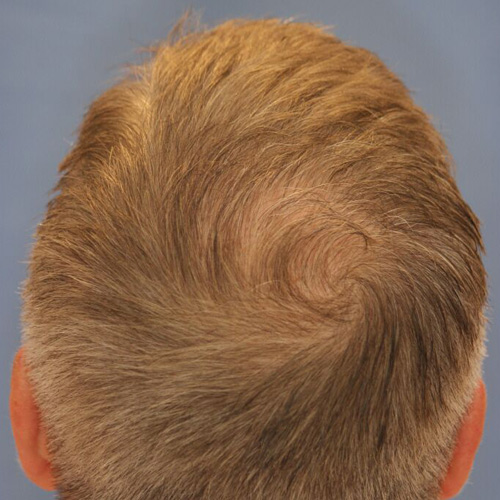 After
After
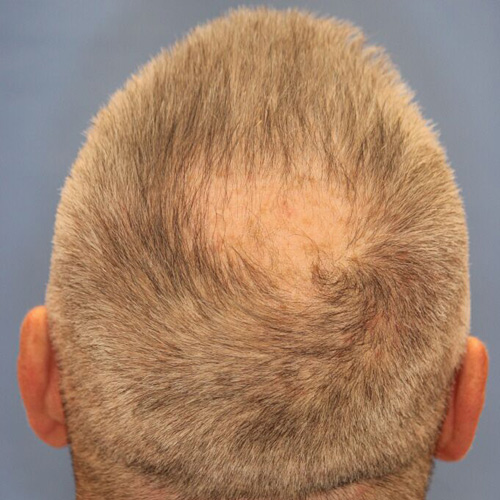 Before
BeforeCorrect a receding hairline by adding more fullness on the top of the head and around the temples.
Results after: 2 treatments
Graft Count: 4,110
Courtesy of Stephen J. Ronan, MD
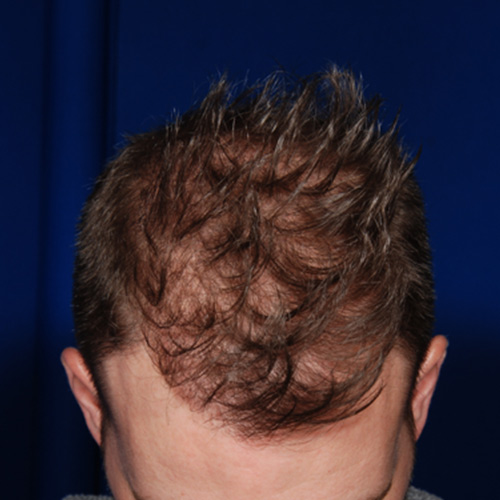 After
After
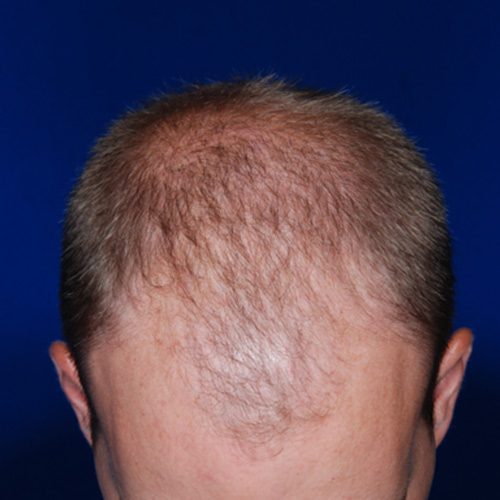 Before
BeforeCorrect a receding hairline by adding more fullness on the top of the head and around the temples.
Results after: 1 treatment
Graft Count: 2,600
Courtesy of Keith Jeffords, MD
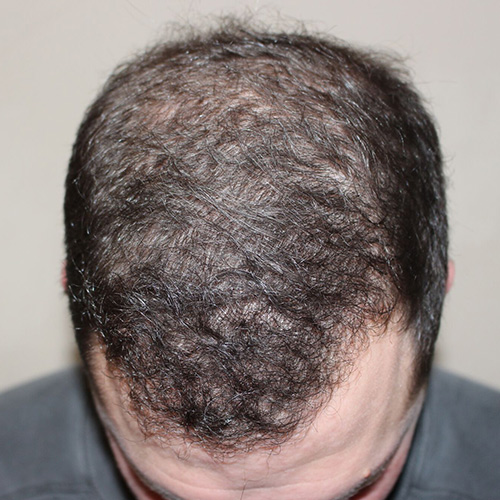 After
After
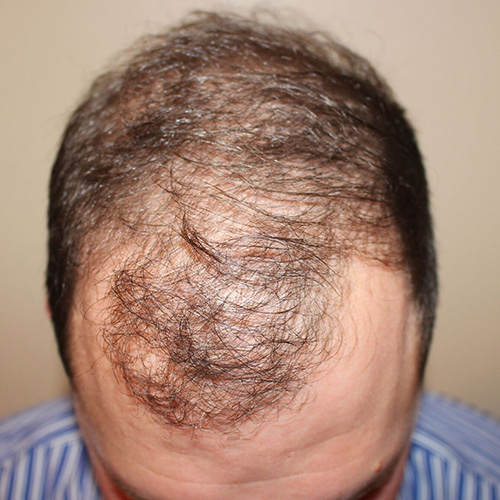 Before
BeforeImprove thinning on the front of the scalp, as well as a receding hairline around the temples.
Norwood Stage: 5
Results documented: 12 months after ARTAS
Graft count: 1886 grafts
Courtesy of Bernstein Medical – Center For Hair Restoration, Robert M. Bernstein, MD
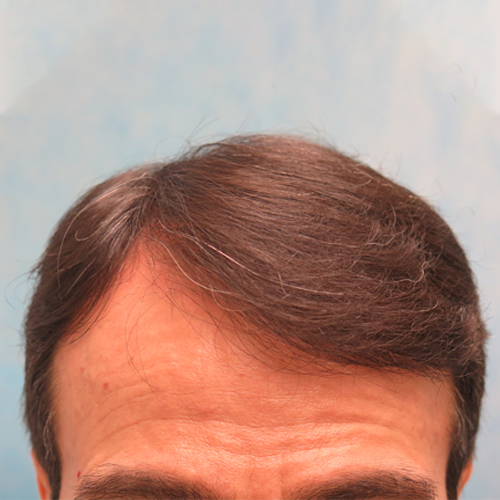 After
After
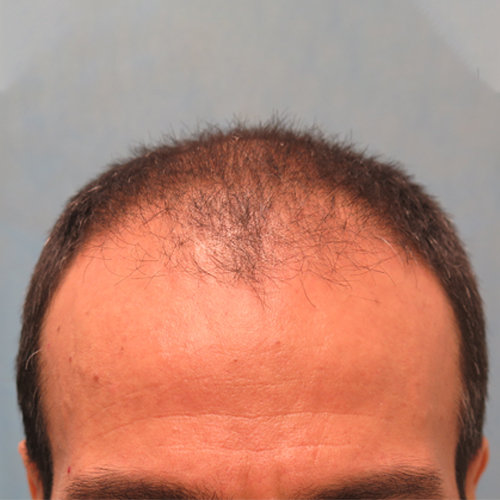 Before
BeforeImprove thinning on the front of the scalp, as well as a receding hairline around the temples.
Norwood Stage: 5
Results documented: 12 months after ARTAS
Graft count: 1886 grafts
Courtesy of Bernstein Medical – Center For Hair Restoration, Robert M. Bernstein, MD
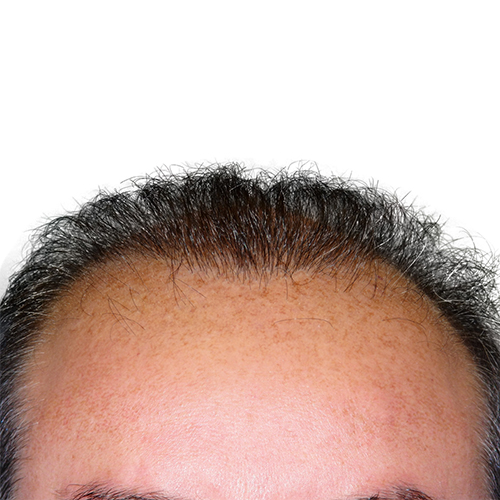 After
After
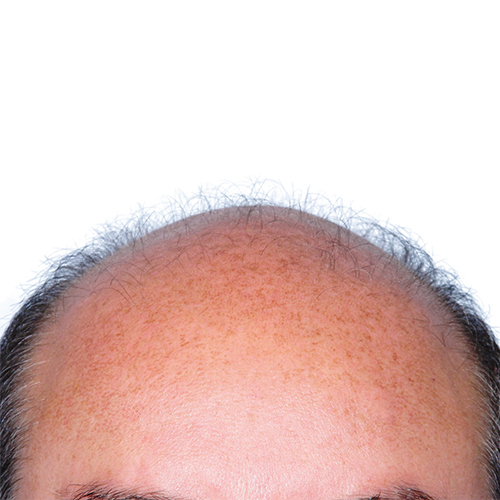 Before
BeforeImprove thinning on the front of the scalp, as well as a receding hairline.
Norwood Stage: 3A
Results documented: 9 months after ARTAS
Graft count: 1066 grafts
Courtesy of the Hair Sciences Center of Colorado, James A.Harris, MD, FACS
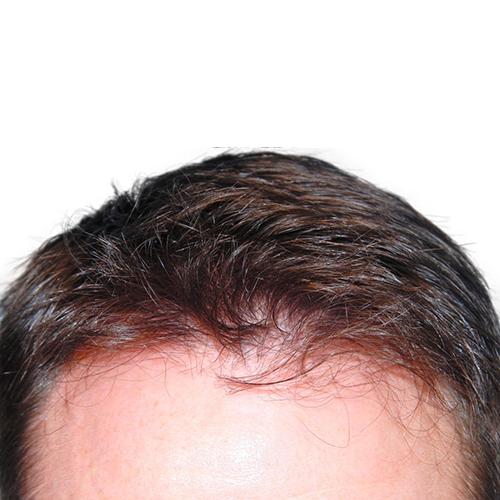 After
After
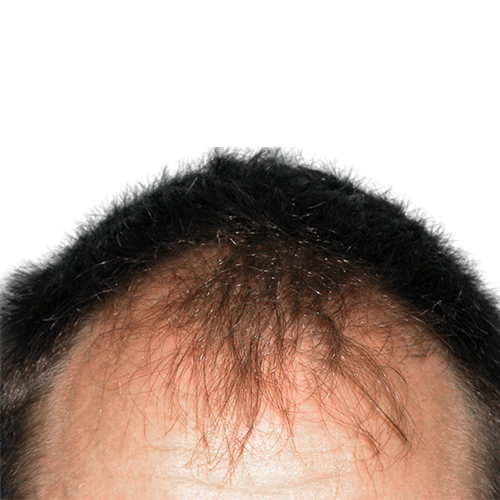 Before
BeforeINDICATIONS FOR USE:
NeoGraft® is cleared by the FDA as a Class I device with motors and accessories intended for use as surgical instruments to cut hard and soft tissue. Venus Concept is the exclusive distributor for NeoGraft® in the U.S.
ARTAS®iX is cleared by the FDA with indication for use for harvesting hair follicles from the scalp in men diagnosed with androgenic alopecia (male pattern hair loss) who have black or brown straight hair. ARTAS®iX is intended to assist physicians in identifying and extracting hair follicular units from the scalp during hair transplantation; creating recipient sites; and implanting harvested hair follicles.
ARTAS® is cleared by the FDA with indication for use for harvesting hair follicles from the scalp in men diagnosed with androgenic alopecia (male pattern hair loss) who have black or brown straight hair. It is also indicated for creating recipient sites for subsequent manual implantation of harvested follicles.
REFERENCES:
Search below to find a provider near you and to learn about our non-surgical aesthetic treatments with ARTAS®, NeoGraft®, Venus Bliss™, Venus Bliss MAX™, Venus Versa™, Venus Legacy™, Venus Velocity™, Venus Viva™ MD, and Venus Glow™.
For more information call: (888) 907-0115 // [email protected] // 4001 SW 47th Ave, Suite 206, Davie, Florida, 33314
REGULATORY CLEARANCES [ More ]
Venus Bliss™ is cleared by the FDA for non-invasive lipolysis of the abdomen and flanks in individuals with a Body Mass Index (BMI) of 30 or less, with the diode laser applicators. The (MP)2 applicator is cleared by the FDA for temporary reduction in the appearance of cellulite.
Venus Versa™ is cleared by the FDA as a multi-application device intended to be used in aesthetic and cosmetic procedures. The SR515 and SR580 applicators are cleared by the FDA for the treatment of benign pigmented epidermal and cutaneous lesions and treatment of benign cutaneous vascular lesions. The HR650/HR650XL and HR690/HR690XL applicators are cleared by the FDA, for the removal of unwanted hair and to effect stable long-term or permanent hair reduction for Fitzpatrick skin types I-IV. The AC Dual applicator is cleared by the FDA for the treatment of acne vulgaris. The DiamondPolar™ and OctiPolar™ applicators on the Venus Versa™ system are cleared by the FDA for non-invasive treatment of moderate to severe facial wrinkles and rhytides on females with Fitzpatrick skin types I-IV. The NanoFractional RF™ applicator is cleared by the FDA for dermatological procedures requiring ablation and resurfacing of the skin.
NeoGraft® is cleared by the FDA with indication for use in suction-assisted follicular extraction and re-implantation. NeoGraft® is an auto-graft system and can be used on both male and female patients.
ARTAS iX™ is cleared by the FDA with indication for use for harvesting hair follicles from the scalp in men diagnosed with androgenic alopecia (male pattern hair loss) who have black or brown straight hair. ARTAS iX™ is intended to assist physicians in identifying and extracting hair follicular units from the scalp during hair transplantation; creating recipient sites; and implanting harvested hair follicles.
Venus Legacy™ is cleared by the FDA for the non-invasive treatment of moderate to severe facial wrinkles and rhytides in females with Fitzpatrick Skin Types I-IV with the OctiPolar™ and DiamondPolar™ applicators, and temporary reduction in the appearance of cellulite with the 4D Body (LB2) and 4D Face (LF2) applicators.
Venus Velocity™ is cleared by the FDA for hair removal, permanent hair reduction (defined as the long-term stable reduction in the number of hairs re-growing when measured at 6, 9 and 12 months after the completion of a treatment regimen), and the treatment of pseudofolliculitis barbae for all Fitzpatrick skin types.
Venus Viva™ is cleared by the FDA for dermatological procedures requiring ablation and resurfacing of the skin. The DiamondPolar™ applicator is cleared by the FDA for the treatment of moderate to severe wrinkles and rhytides in Fitzpatrick skin types I-IV.
Venus Freeze Plus™ is cleared by the FDA for the non-invasive treatment of moderate to severe facial wrinkles and rhytides in Females with Fitzpatrick skin types I-IV.
Venus Heal™ is cleared by the FDA for the relief of minor muscle aches and pain, relief of muscle spasm, and temporary improvement of local blood circulation. These indications enable the treatment of certain soft tissue injuries and conditions.
Venus Freeze™ is cleared by the FDA for the non-invasive treatment of moderate to severe facial wrinkles and rhytides in Females with Fitzpatrick skin types I-IV.
Venus Glow™ is cleared by the FDA as a Class I motorized dermabrasion device. It provides a dermal rejuvenation treatment that works to open up and deep-clean pores. Venus Concept is the exclusive distributor for Venus Glow™.
Venus Swan™ is cleared by the FDA for the non-invasive treatment of moderate to severe facial wrinkles and rhytides.
Copyright © 2025 Venus Concept. All rights reserved.
You are entering our website. For other countries/regions and language options, please click the SELECT A DIFFERENT REGION button below.
SELECT A DIFFERENT REGIONAre you looking to get a treatment? Please visit our patient website to learn more.
Click HereUnsure which aesthetic treatment is right for you? Take this quick and easy quiz to discover treatments that suit your needs.
Get Started